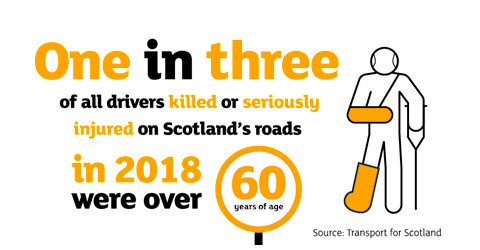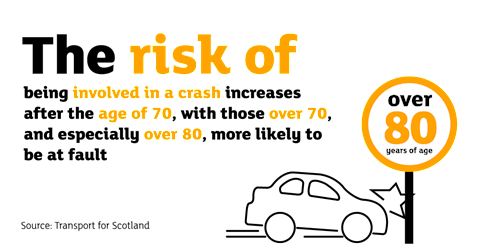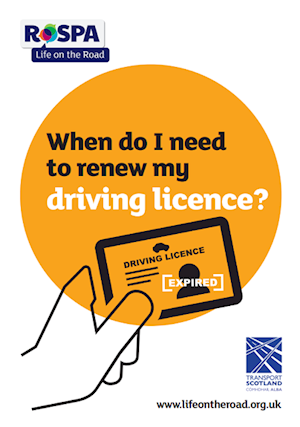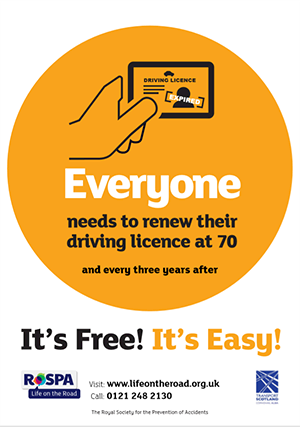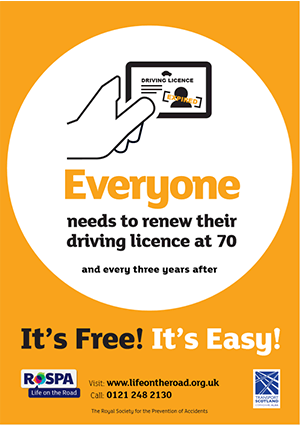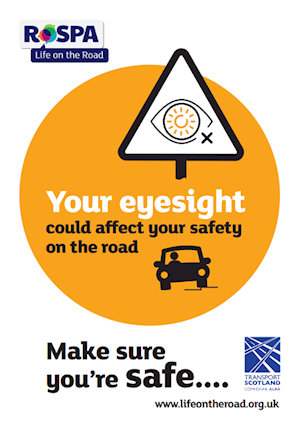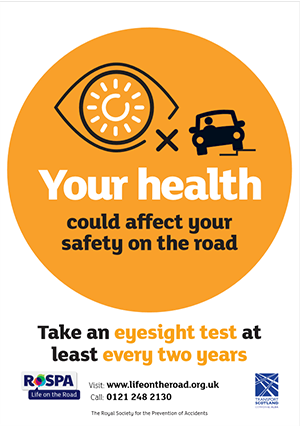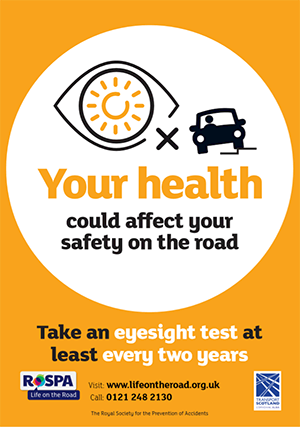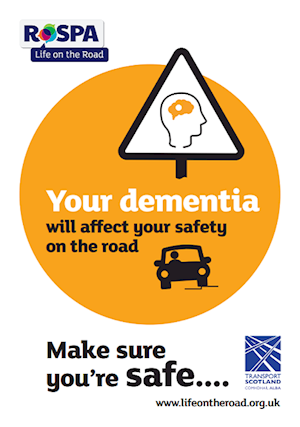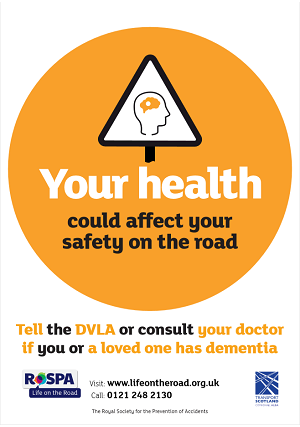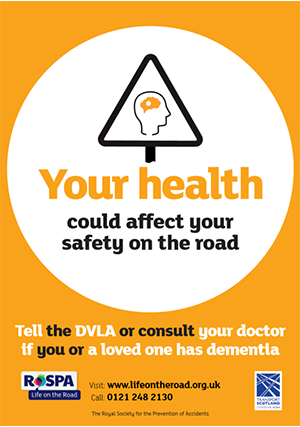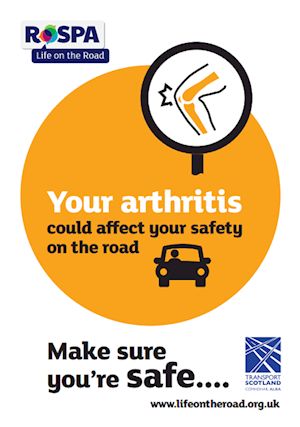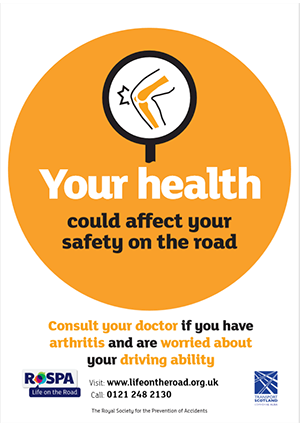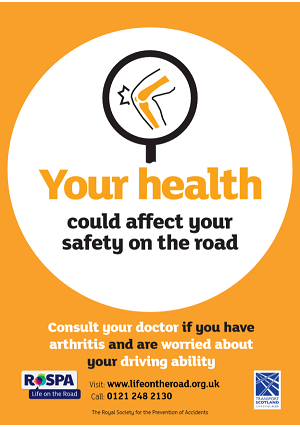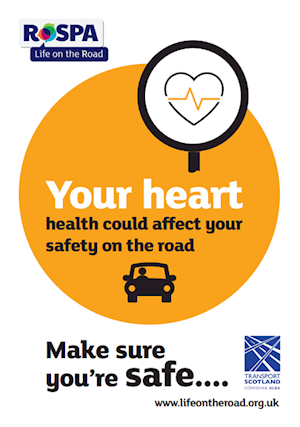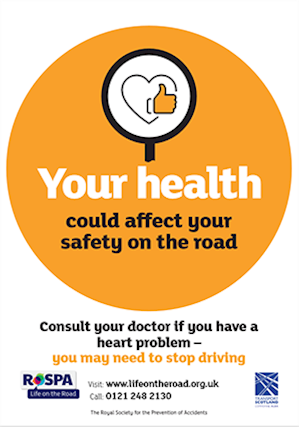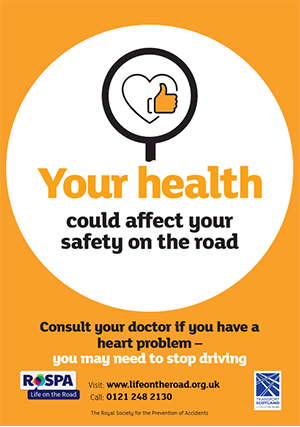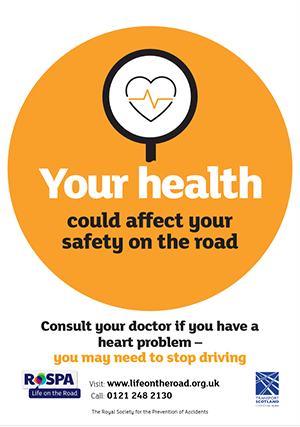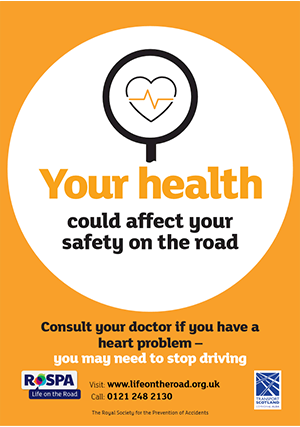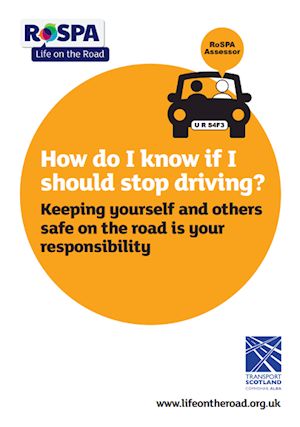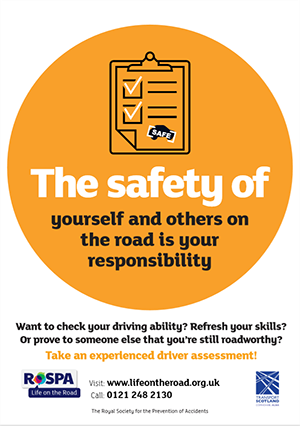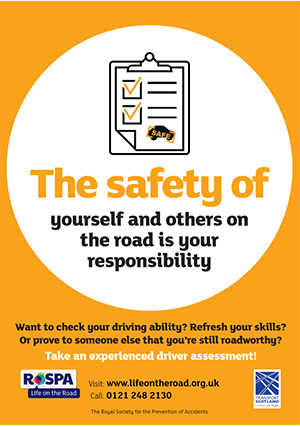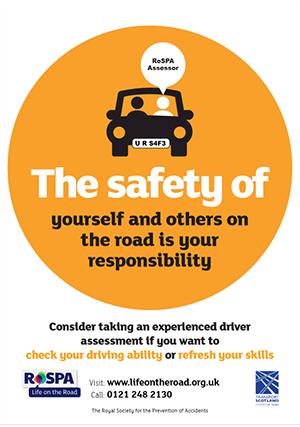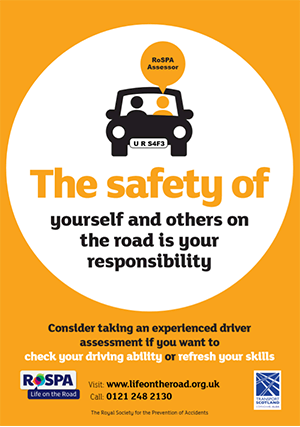Eyesight
Most people experience deteriorating eyesight in one form or another as they get older, either as a natural part of ageing or because we develop an eye disease such as cataracts, and can affect us in different ways.
Poor eyesight can make it harder to see road signs and markings, pedestrians, cyclists, horse riders and motorcyclists, especially in the dark. It can be more difficult to judge someone else's speed or distance, and it can slow our reaction time. This can result in braking or taking avoiding action too late, or even not seeing something or someone completely.
The Rules
In good daylight, you must be able to read a car number plate (made after September 1, 2001) from a distance of 20 metres, while wearing glasses or contact lenses if necessary.
If you need glasses or contact lenses to drive, you must wear them at all times when driving.
You must report any condition that affects both eyes and vision (except long or short sight or colour blindness) to the DVLA, using form V1. This does not necessarily mean you will lose your licence – an assessment of your vision will be made.
If the DVLA says you can carry on driving, consider taking a driving assessment, and take a look at the advice in Keep Driving and Your Car to see what can help you to adapt your driving.
It is strongly recommended that all drivers have an eyesight test at an opticians every two years, or more often if the optician advises.
Avoid wearing glasses with tinted lenses, unless advised to do so by your optician or ophthalmologist. Tinted lenses reduce the amount of light available to the eye, and are not recommended for driving, especially at night or in poor visibility.
Further details can be found at Driving Eyesight Rules and Eyesight.
Dementia
Dementia can lead to slower response times, failing memory and confusion. Some common driving problems are: forgetting familiar routes; getting confused between the pedals; failing to give way; responding slowly to directions or instructions; or being confused by complex situations and stopping unexpectedly when there is no need.
The Rules
You must tell the DVLA if you suffer from dementia, using form CG1.
Consult your doctor or another health professional and follow their advice about whether it is safe for you to drive.
If your doctor or the DVLA says you can carry on driving, consider taking a driving assessment and take a look at whether the advice in Keep Driving and Your Car can help you to adapt your driving.
Further information
Advice and help for people with dementia is available from:
Dementia UK
0800 888 6678
info@dementiauk.org
Arthritis
Arthritis (and other musculoskeletal conditions) can affect a driver's mobility and physical strength, motor skills and co-ordination. This can make it harder to use the vehicle's controls or, for example, to turn your head to maintain all-round visibility.
The Rules
You only need to tell the DVLA that you have arthritis if you use special adaptive vehicle controls.
Consult your doctor or another health professional about driving and follow their advice. Consider whether a driving assessment or vehicle adaptations would make driving easier and safer for you.
A wide range of equipment is available including steering aids, hand controls, special cushions, swivel seats to help you get in and out of the car, hoists to lift you and your wheelchair if you use one, and driving accessories. Contact Driving Mobility (formerly known as the Forum of Mobility Centres), Motability or Rica for advice.
The DVLA can refer drivers to a mobility centre for an assessment (which the DVLA will pay for) or you could book an assessment at a mobility centre yourself, which will probably be quicker but you would have to pay for it. See Find a Driver Assessment for details of your nearest mobility centre.
Further information
Advice and help for people with arthritis is available from:
Arthritis Care
0808 800 4050
info@arthritiscare.org.uk
Heart Disease
Heart problems can cause dizziness, fainting or blackouts. If you lost consciousness while driving, you would lose control of your vehicle and crash almost immediately. This puts you and other at risk, especially pedestrians, cyclists and motorcyclists.
The Rules
Stop driving, and only drive again when your doctor says it’s safe to do so.
Your doctor will also tell you whether you need to report your condition to the DVLA. Follow your doctor’s advice.
If the DVLA says you can drive again, consider taking a driving assessment, and take a look at the advice in Keep Driving and Your Car.
Further information
Advice and help about heart disease is available from:
DVLA leaflet INF 188/4 and Health Conditions and Driving
British Heart Foundation
0300 330 3322
supporterservices@bhf.org.uk
Hearing
Hearing impairments can affect our ability to detect and respond to important audible information such as sirens, horns, engine and tyre problems, road sounds, and other traffic and road users. This might mean reacting late in a hazardous situation, which would increase the risk of crashing.
The Rules
You do not need to tell the DVLA, but you should consult your doctor or a hearing specialist, and follow their advice.
However, consider taking a driving assessment and take a look at the advice in Keep Driving and Your Car.
Medications
Some prescription drugs and over-the-counter medicines can affect driving. It can be difficult to predict whether a medicine will affect your ability to drive, and if so, how and for how long. Drinking alcohol with some medicines makes their effect on your driving even worse.
It is illegal to drive if unfit to do so because of drugs or medicine; it is also illegal to drive with certain medicines in your blood above specified limits. For more detail see Rule 96 of the Highway Code, Think Road Safety and Drug Driving.
The Rules
Check with your doctor or pharmacist whether any medication you are taking is likely to affect your ability to drive safely, and whether you should drive at all. Do not drive if you are advised that you may be impaired. Ask if there is an alternative medication, but if there is not, take the medicine as prescribed but do not drive.
However, it is very important that you take any medications that you have been prescribed, in the way you should take them (the correct dosage, timing) and follow any advice, such as avoiding alcohol.
Consider taking a driving assessment and take a look at the advice in Keep Driving and Your Car.
Stroke
Strokes affect the supply of oxygen to the brain, and can lead to sudden loss of consciousness. If this happened while you were driving, you would lose control of your vehicle and crash almost immediately. This puts you and other people at risk, especially pedestrians, cyclists and motorcyclists.
The Rules
Stop driving, and only drive again when your doctor says it’s safe to do so.
Your doctor will also tell whether you need to report your condition to the DVLA. Follow your doctor's advice.
If the DVLA says you can drive again, consider taking a driving assessment, and take a look at the advice in Keep Driving and Your Car.
Further information
Advice and help about strokes is available from:
Stroke Association
0303 3033 100
info@stroke.org.uk
Parkinson’s Disease
Parkinson's disease can compromise a driver's motor, visual spatial, information processing, attention, and decision-making functions. Drivers with Parkinson's disease have more difficulty with manoeuvres such as maintaining lane position, turning, steering and speed control.
The Rules
You must tell DVLA if you have Parkinson's disease, using form PK1.
Consult your doctor or another health professional and follow their advice about whether it is safe for you to drive.
If the DVLA says you can carry on driving, consider taking a driving assessment, and take a look at the advice in Keep Driving and Your Car.
Further information
Advice and help for people with Parkinson's is available from:
Parkinson's UK Scotland
0344 225 3724
scotland@parkinsons.org.uk


